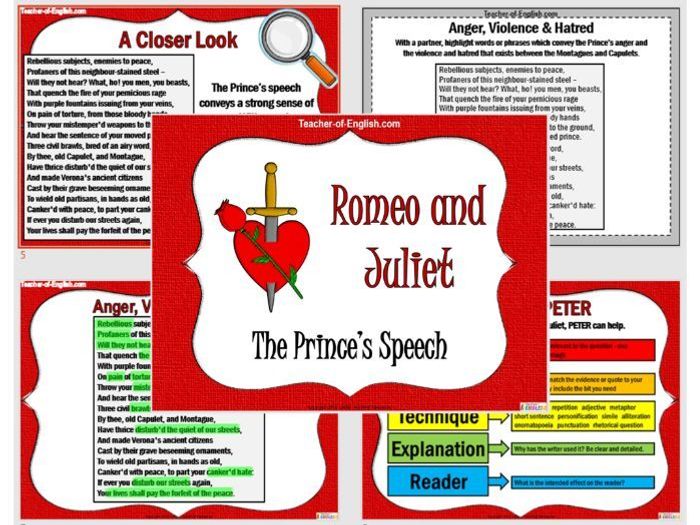Delving into the iconic “prince monologue romeo and juliet”, this analysis embarks on a journey through the complexities of Romeo’s character, unraveling the tapestry of his emotions, motivations, and the profound impact of his words on the play’s narrative.
Within the confines of this monologue, we witness Romeo’s emotional turmoil, his impulsive nature, and the intoxicating power of love that drives his actions. Through a meticulous examination of the literary devices employed and the dramatic context, this exploration sheds light on the significance of this pivotal moment, its impact on the audience, and the enduring legacy it leaves within the annals of literary history.
Romeo’s Character and Motivation

Romeo’s monologue reveals his emotional turmoil and motivations throughout the play. He is a passionate and impulsive character, driven by his intense love for Juliet.
Romeo’s Emotional State
- Love-struck and infatuated
- Overwhelmed by despair and grief
- Suicidal thoughts
Romeo’s Motivations
- To be with Juliet, regardless of the consequences
- To escape the pain of his unrequited love
- To seek revenge on Tybalt for killing Mercutio
Poetic Devices and Language
Shakespeare employs various literary devices in Romeo’s monologue to convey his emotional intensity and despair.
Metaphors and Similes
- “My lips, two blushing pilgrims, ready stand to smooth that rough touch with a tender kiss”
- “But soft! What light through yonder window breaks? It is the east, and Juliet is the sun”
Personification
- “See how she leans her cheek upon her hand! O, that I were a glove upon that hand, that I might touch that cheek!”
- “Night’s candles are burnt out, and jocund day stands tiptoe on the misty mountain tops”
Imagery
- Romeo imagines himself as a glove on Juliet’s hand, touching her cheek
- He describes Juliet as the sun, breaking through the darkness
Dramatic Context and Impact: Prince Monologue Romeo And Juliet

The monologue occurs at a crucial moment in the play, after Romeo has killed Tybalt and been banished from Verona.
Significance
- Reveals Romeo’s desperation and willingness to sacrifice everything for Juliet
- foreshadows the tragic events that follow
- Shows the power of love to drive people to extremes
Impact on Audience
- Creates sympathy for Romeo’s plight
- Builds suspense and anticipation for the play’s resolution
- Highlights the tragic consequences of impulsive actions
Performance and Interpretation
Performing Romeo’s monologue is a challenging but rewarding task for actors.
Challenges
- Conveying Romeo’s intense emotions
- Balancing passion and vulnerability
- Interpreting the monologue’s poetic language
Opportunities, Prince monologue romeo and juliet
- Showcase acting skills
- Explore the depths of Romeo’s character
- Create a memorable and moving performance
Interpretations
- Romantic and passionate
- Despairing and heartbroken
- A combination of both
FAQs
What is the significance of Romeo’s emotional state in the monologue?
Romeo’s emotional state is characterized by intense passion, impulsivity, and a profound sense of despair, reflecting the tumultuous journey of love and loss he embarks on.
How does Shakespeare’s use of language convey Romeo’s emotional intensity?
Shakespeare employs a rich tapestry of literary devices, including metaphors, similes, and personification, to vividly depict Romeo’s emotional turmoil, capturing the raw intensity of his feelings.
What is the impact of the monologue on the audience’s understanding of the play?
The monologue provides a profound insight into Romeo’s character development, motivations, and the progression of the plot, enhancing the audience’s comprehension of the play’s themes and the tragic trajectory of the lovers.